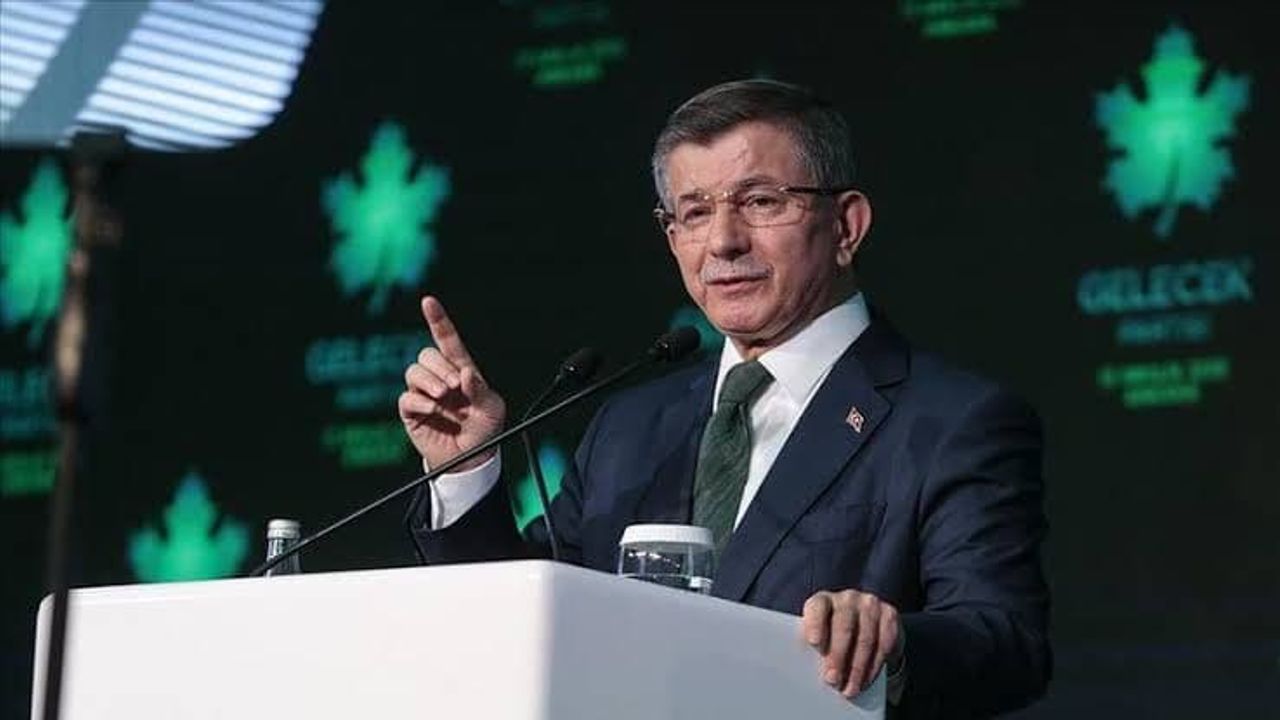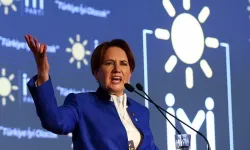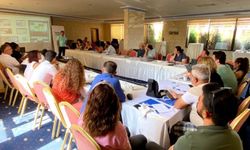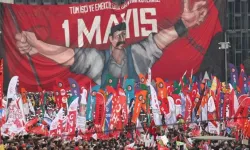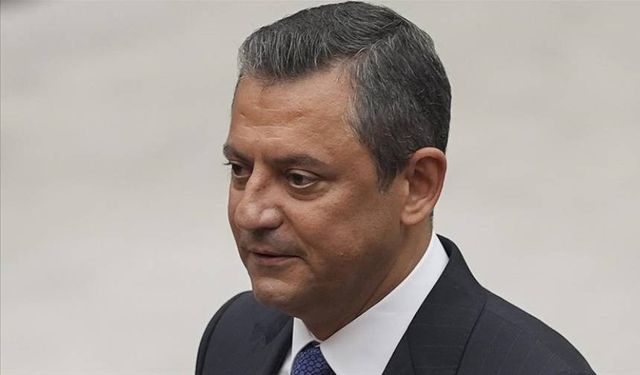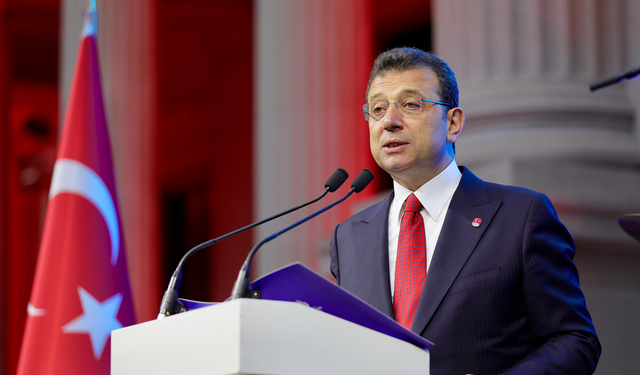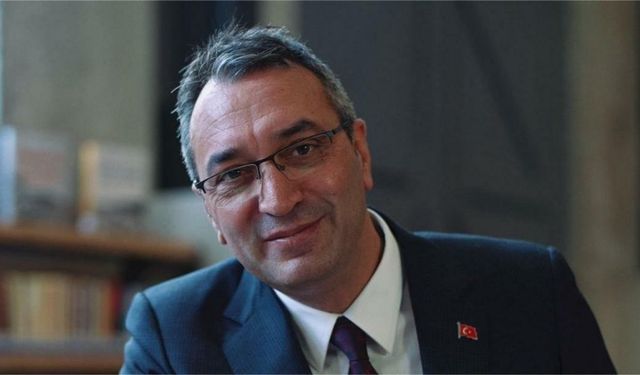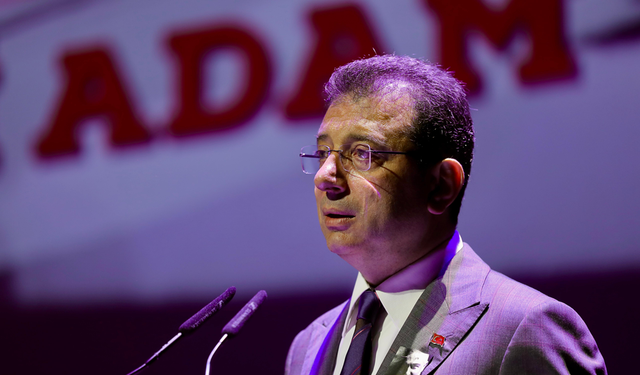The Involvement of Turkey in the Middle East and Africa was an important threshold, which signalled a critical change in Turkish foreign policy. Trying to elevate itself from a regional NATO garrison to a proactive state, Turkey changed its approach towards its neighbours and engaged itself with regional conflicts surrounding the country.
Theoretical construction and the practical application of this involvement can be largely attributed to the former Prime Minister and Foreign Affairs Minister Ahmet Davutoğlu, who has laid out this foreign policy vision in his book Strategic Depth, first published in 2001.
However, after his departure from the ruling Justice and Development Party (AKP), Davutoğlu formed a new party called "Gelecek Partisi" (Gelecek Party) against the ruling coalition, and since then he has become a vocal critic against the political structure once he was part of.
Thus, with this article, I aim to provide a brief introduction to Davutoğlu’s political career, an investigation into his foreign policy, and an analysis of the party program of the Gelecek Party.
A SHORT INTRODUCTION
In November 2002, Ahmet Davutoğlu was selected to Former Prime Minister Abdullah Gül’s cabinet as a foreign policy advisor and an ambassador. Later, on May 1st, 2009, Davutoğlu was appointed as the foreign minister of Turkey by then-prime minister Recep Tayyip Erdoğan (current President of Turkey). On August 29, 2014, Davutoğlu became the Prime Minister of Turkey as Erdoğan became the new president of Turkey and chose Davutoğlu as his successor.
However, despite his steady rise in the Turkish Government, on November 1st, 2015, Davutoğlu’s relationship with Erdoğan corroded due to disagreements on many issues such as Davutoğlu’s refugee deal with German President Angela Merkel and his proposed transparency law that aimed to hold former ministers accountable on corruption charges.
The relationship that was already in decline got even worse on May 5th, 2016, as Davutoğlu announced his resignation as the prime minister and the chairman of the Justice and Development Party (Soylu 2019).
On December 13th, 2019, Davutoğlu declared the establishment of the Gelecek Party. Many Justice and Development Party members were seen departing from AKP and joining the Gelecek Party. These ex-associates have complained that AKP had fallen under the control of certain individuals while adding that they were open to criticism about their past with AKP (BBC News 2019).
Having briefly highlighted Davutoğlu’s political career and the developments that led to the formation of the Gelecek Party, I would like to unpack Davutoğlu’s theoretical framework and policies regarding the foreign affairs of Turkey.
GEO-CULTURAL SPACE AS A NEO-COLONIAL APPARATUS
State penetration into geo-cultural spaces forms the basis of Ahmet Davutoğlu’s vision for Turkish foreign policy, through which power is practiced both regionally and internationally. To properly investigate this assessment and to evaluate the theoretical framework of Davutoğlu’s foreign policy, the focus of our investigation will be his book Stratejik Derinlik (Strategic Depth).
According to Davutoğlu, previous administrations of Turkey have long been silent about the erasure of Ottoman legacy and Islamic culture in Greece and Bulgaria. Davutoğlu underlines that every mosque erased from the Balkans, each diminishing Islamic institution, and cultural eradication of Ottoman tradition will limit the activity of the Turkish government in the region. Exemplifying the importance of Islamic background and the Ottoman legacy during the Bosnian War, Davutoğlu reminds that the initial support for secular Fikret Abdic against Alija Izetbegovic, who raised concerns in the Turkish government due to his politically Islamic background, turned out to be the wrong decision as the former figure, later, joined the Serbian side (2016, 54).
In that sense, it is possible to see that Davutoğlu does not consider Islam to be a part of the Turkish identity, a domestic affair, but rather sees an opportunity of 'instrumentalizing' the Ottoman legacy and Islamic identity in the Balkans and elsewhere to project the influence of the Turkish government.
This assessment is most evident in Davutoğlu’s policies towards Balkans, as he advises that the short and mid-term policies of Turkey in Bosnia and Albania should focus on the steady development of these countries, along with the creation of international protective law on ethnic minorities in the region as well as the obtainment of legal guarantees to Turkey, through which Turkey will have the right for intervention in issues involving Muslim minorities (2016, 123).
On the other hand, Davutoğlu does not solely instrumentalize the Ottoman legacy and Islamic identity as a means of influence expansion, but also as a means to counter different cultural hegemonies. For example, regarding his Eurasia policy, Davutoğlu assesses that the most important factor that can break the Slavic and Russian influence in Eurasia is the strengthening of Islamic identity as a counterforce that will help with the preservation of Turkic identity against Soviet assimilation (2016, 250).
Therefore, it is no surprise that Ahmet Davutoğlu prioritized Turkey’s role as a protectorate of Crimean Tatars during the Russian-Ukrainian War, considering the future of Crimean Tatars as the "most important issue" for Turkey and adding that the government is in constant communication with Crimean Tatars (Sabah Daily 2014) while meeting and cooperating with the Crimean NGOs as well (Republic of Turkey Ministry of Foreign Affairs, n.d. a).
Another example showcasing Davutoğlu’s attempt at exerting influence over Turkic and Islamic minorities can be his close cooperation with Syrian Turkmen. In 2013, signalling that a phase of construction is underway for a new Syrian government, Davutoğlu said that Syrian Turkmen should be actively involved with the opposition coalition in Syria and that Syrian Turkmen should plan how they will take place in the newly created political order (Republic of Turkey Ministry of Foreign Affairs, n.d. b). In this case, it becomes evident that Davutoğlu sees these conflicts as an opportunity to exert his influence over these cultural groups and to locate them into political positions, which would be in line with his administration’s policy choices in the Syrian Civil War and the Crimean War.
This instrumentalization of relations between Davutoğlu’s administration and cultural groups abroad carries a neo-colonial mindset as indirectly expressed in Davutoğlu’s theorization of Turkey’s foreign policy. While referring to the importance of assuring the safety of Northern Cypriots and its broader security implications, Davutoğlu refers to the cultural groups he aims to connect with as "Ottoman remnants" (2016, 179). Keeping in mind the analysis made up to this point, Davutoğlu does not acknowledge the autonomy of these geo-cultural spaces and constantly identifies them through Ottoman heritage that strips away the self-determination of these geo-cultural spaces and installs a neo-colonial hegemonic relation.
Davutoğlu regards the self-determination of cultural groups in the region as a 'divisive' factor. For example, Davutoğlu thinks that the Middle East has been splintered due to political, religious, and ethnic polarization (2016, 330). To overcome this, Davutoğlu proposes that the unifying view needed in the region could be found in the Ottoman legacy (2016, 331). As a result, Davutoğlu suggests that Turkey’s ability to properly manage its past as a strategic foundation will carry great importance in the establishment of a just and permanent order, while adding that the political problems of the region cannot be understood and debated on legal grounds without the Ottoman archives (331).
To understand the Neo-Colonial perspective of Davutoğlu, we need to focus on how he frames the solution and how this framing positions the geo-cultural actors involved in the discussion.
First, by positioning the proper management of the Ottoman legacy as a medium of reconciliation in the region, Davutoğlu portrays this legacy as if it is an objective cultural medium for the Middle East and more importantly, keeps his administration responsible, and authoritative over other parties involved in the mediation efforts.
In that sense, Davutoğlu’s foreign policy vision tries to position his administration as a hegemon entity of arbitration, through which the political problems of the region could be resolved. Therefore, Davutoğlu previously stated that he desired Turkey to lead the process of normalization in the Middle East (Başkan 2016, 87). Moreover, Davutoğlu stated that he aimed to break the Sykes-Picot agreement and artificially drawn maps in the Middle East that were based on nationalist ideologies (Başkan 2016, 124).
Secondly, and more explicitly, Davutoğlu centralizes Ottoman historic narrative as a key in conceiving the problem of polarization in the Middle East. Similar to the first step, in this second step Davutoğlu aims to install the Ottoman perspective as the agency through which geo-cultural actors are forced to define themselves and their problems, while non-Ottoman historic perspectives are left out from the discussion as it does not render Davutoğlu’s administration as a hegemon.
As a result, it appears that Davutoğlu’s engagement with geo-cultural spaces does not carry a participatory or a mediational function in its essence. Davutoğlu’s vision cosmetically appears to include these functions, while at its core, his policies aim towards the creation of a hegemonic structure.
In addition, Davutoğlu’s constant attempts at making the Ottoman legacy relevant in contemporary politics point out to a tragic reality. His romantic views on the Ottoman past signify at the same time that he fails to see other regional actors and culture groups as autonomous, and rather as weak actors dependent on the Ottoman 'savior'.
Having explored Davutoğlu’s theoretical foundations, the next step of my analysis will cover the practice of Davutoğlu’s foreign policy vision. According to Bezen Balamir Coşkun, Davutoğlu’s foreign policy vision can be regarded as the promotion of win-win solutions, usage of soft power, and involvement in conflict resolution (2015, 189). In conjunction with that vision, Coşkun exemplifies through Kemal Kirişci’s assessment that as the Turkish economy gradually integrated into the global economy, military-political and territorial policies were abandoned in favour of "policies associated with a trading state in foreign policy" (2015, 190).
This assessment seems to be an accurate one in that with Davutoğlu’s administration, Turkey’s soft power involvement with the Middle East rose since economic relations progressed and export volumes heightened, along with the removal of visa restrictions and establishment of Turkey as a resolution mechanism for the problems encountered in the region through the involvement of Turkey-based NGOs such as YTB, Yunus Emre Foundation, TIKA and Turkish Red Crescent (Tarcan et al. 2018, 254).
In terms of providing humanitarian aid, there has been a steady rise in development assistance provided by Turkey as of 2005, which peaked at over 2 billion USD in 2012 (Tüfekçi 2014, 281). In addition, Davutoğlu’s administration can be seen specifically targeting Middle Eastern countries with these humanitarian aid programs, as between 2007 and 2011 respectively Iraq, Libya, and Syria were the top countries to receive humanitarian aid from Turkey after Pakistan and Somalia (Tüfekçi 2014, 282).
Moreover, it should be added that Davutoğlu’s initiatives to render Turkey as a conflict resolution medium and a humanitarian actor were not limited to humanitarian aid provided to Middle Eastern countries, but these policies were also integrated into economic initiatives. "Industry for Peace", an initiative of Turkey on Israeli-Palestinian resolution, and "Levant Business Forum", again an initiative by Turkey connecting business and political representatives of Jordan, Lebanon, Syria, and Turkey (Sazak and Kurc 2018), can be both regarded as the examples of such integration.
However, these mediation efforts in the Middle East were soon undermined by Davutoğlu’s aggressive take and intensified involvement in the region. Gradually drifting away from soft power to rather assertive positions in foreign policy, Davutoğlu called on the Egyptian government to include a Muslim Brotherhood affiliate and former Egyptian President Mohamed Morsi once again into Egyptian politics (Hürriyet Daily News 2013), while in 2013 Davutoğlu stated his support for a regime change in Syria and added that he would join a coalition against Assad (Politico 2013) and even downing a Russian jet near to the Turkish-Syrian airspace in 2015 (Gass 2015).
As a result, direct engagement with geo-cultural spaces in foreign countries bypassed state-level institutional engagement between Turkey and other countries in the region, and it created an asymmetric relation between the parties. This asymmetric relation created a situation that displayed Turkey as engaging with the civil sphere of Middle Eastern countries on a state level, which occurred to certain state-actors as interference into domestic affairs (i.e., deteriorating Egypt-Turkey relations due to continuing support of Davutoğlu’s administration for Muslim Brotherhood even after the military coup in Egypt).
Also, this direct engagement by Davutoğlu’s administration both diminished Turkey’s maneuvering space in foreign affairs and erased Turkey’s image as a humanitarian mediator in the Middle East. This policy choice proved to be especially troublesome in countries where the engaged geo-cultural space was in direct contestation with the state. For example, Davutoğlu’s administration zealously engaged with the Syrian opposition and the Muslim Brotherhood in Egypt, which naturally positioned Turkey in accord with the interests of these geo-cultural spaces and hindered state-to-state diplomatic engagement.
Davutoğlu completely embraced the Muslim Brotherhood and went as far as saying that the social movements in the Middle East were "both Arab Spring and Turkish Spring" (Başkan 2016, 88), while his reading on Syria led him to believe that the Syrian regime was isolated from its populace and thus could not stand to change (Başkan 2016, 94).
However, it became evident over time that regime change would not be possible in Syria and the Muslim Brotherhood network was toppled down after the military coup led by Abdel Fattah el-Sisi, while the Davutoğlu administration having betted on wrong horses caused Turkish foreign policy to suffer isolation in the long term. That is why Presidential advisor Ibrahim Kalın previously admitted the 'precious loneliness' of Turkey (Gardner 2015). The current re-engagement and normalization efforts between Turkey and Egypt (Hosny 2021) prove the above-mentioned threat of diminishing foreign policy maneuvering capabilities due to Davutoğlu’s dedication to geo-cultural spaces that ended up Turkey getting isolated in the region as the country lost its non-partisan stance in conflict management.
Conclusively, it can be stated that Davutoğlu’s attempts of instrumentalizing the Ottoman legacy and the Islamic identity to penetrate into geo-cultural spaces in the Middle East has not only caused Turkish foreign policy to be pinned by certain policy positions under Ahmet Davutoğlu’s administration, but it has also caused Turkey to be regionally isolated as those supported geo-cultural spaces lost their political struggle against their contested states.
AN ANALYSIS OF THE PARTY PROGRAM
Bringing a balance to the centre and periphery relations in the contemporary governance of Turkey stands out as the main agenda upon which the entire party program of the Gelecek Party has been established.
Especially targeting the bureaucratic structure, the party program emphasizes a division of tasks, authority, and responsibilities between the ministries by assigning certain issues relating to multiple ministries to a single ministry (2019, 50). For example, the party program proposes a separation in the Council of Judges and Prosecutors by dividing the council into two separate branches of Judges Committee and Prosecutors Committee (2019, 61), as well as a reduction in the number of public personnel (2019, 67).
In that sense, the party aims an agenda similar to the judiciary practice of separation of powers by promoting a 'separation of functions' on the ministerial domain. As a result, these policies re-calibrate the centre and periphery relations in the bureaucratic domain of Turkey that was heavily centralized with the shift to the Presidential system in 2017. Therefore, it is easy to realize that Gelecek Party tries to empower the periphery by strengthening the local, as the party program states that issues that are possible to resolve locally should not require any central governance (2019, 52).
Moreover, the policy of re-calibration between the centre and periphery is also extended into the economic domain in the party program. For example, it is underlined that the operational independence of Central Bank of Turkish Republic (TCMB) should be protected against external political interventions (2019, 94), as well as other financial organizations such as the Banks Association of Turkey (TBB), Participation Banks Association of Turkey (TKBB), Association of Financial Institutions (FKB), and Turkey Capital Markets Association (TSPB) should be purified from political inducement (2019, 97).
In addition, the party program employs the same decentralization agenda when it comes to intergovernmental organizations, as it underlines that the UN has lost its relevance in conflict resolution while regional organizations such as NATO and European Union have lost their operational and functional capacities (2019, 117). Similar to the emphasized localization in domestic governance, the party program also offers regional integration rather than international resolution as it proposes that the number of regional cooperation mechanisms and organizations will be increased against foreign intervention (2019, 131). Thus, balancing the centre-periphery relations seems to be an integral part of the party policy in both domestic and international issues.
Having mentioned inter-governmental organizations and regional issues, I would like to proceed with providing analysis over the foreign policy choices of the Gelecek Party as underlined in the party program.
Penetration into geo-cultural spaces, as previously analyzed through Davutoğlu’s Strategic Depth, remains as the main vision forming the foreign policy agenda of the Gelecek Party. For example, in the party program, it is stated that no compromises will be made on the security infrastructure based on the depth of Turkey’s history (2019, 120). Also, Davutoğlu’s self-attained historic responsibly over different ethnic and demographic groups still seems to be a continuous policy, since Turkish citizens living abroad and brotherly nations feeling close to Turkey due to historic ties are labelled as a great 'opportunity' and 'responsibility' at the same time for Turkey (2019, 134). In that sense, involvement with and power projections through ethnic, religious, and demographic structures based on the Ottoman legacy can be seen as still relevant to Davutoğlu even after the previous failures of implementing this strategy.
Besides the continuation of Davutoğlu’s foreign policy vision, the party program also outlines a strategy for a new set of relations between Turkey and emerging dynamics. However, this strategy can be labelled as an attempt of getting the best of both worlds. With this strategic vision, Gelecek Party tries to maximize relations with emerging and dominant actors while pressing for private interests as well, which creates a faulty framework for policy application.
For example, the party program aims to expand the United States-Turkey relations dominated by security concerns through cultural and economic developments (2019, 127). At the same time, the party program sees a potential for cooperation with Russia on energy, trade, tourism, agriculture, and defence industry sectors (2019, 128). One obvious inconsistency in this agenda is the security cooperation with both Russia and the U.S. as a NATO country.
Considering how Turkey was targeted with CAATSA sanctions (Pompeo 2020) and ousted from the F-35 Jet program for acquiring the Russian made S-400 surface to air defence systems (Gumrukcu 2021), it becomes quite clear that any further cooperation between Turkey and Russia on defence industry sector would greatly harm U.S.-Turkey relations that are traditionally built on the agenda of containing Russia in the region.
Secondly, arms trade and defence cooperation are not simply a common form of commercial trade. Besides the international regulations and obligations involved with arms trade, the issue of integrating and optimizing Russian arms to the NATO defence framework makes it harder for Turkey to cooperate with Russia in the defence sector. For these Russian-Turkish made arms products to efficiently work, it would require Turkey to introduce these arms products as friendly units if these were to be used by Turkey as well. Naturally, such a hypothetical introduction of Russian-Turkish arms trade to the NATO database would make it hard to engage against these units by NATO members, if these arms products were to be used by Russia as well.
Thirdly, further engagement with Russia on trade and energy sectors would not simply mean a trade engagement solely between the two countries, but rather it would have broader implications. It should be noted here that Russia provides great connectivity between China and Europe, and thus constitutes one of the important stages in actualizing the Belt and the Road Initiative. In that sense, deepening trade ties between Turkey and Russia would also pave the way for further transport connectivity and infrastructure building to efficiently integrate trade relations between the two countries, and through the Russian-Turkish trade connectivity, the Chinese goods would also be able to reach out to diverse regions as well. Considering how transport routes going through Russia could as well be linked with Chinese transport routes, Russian-Turkish transport connectivity arising from trade efficiency would make it possible for Chinese transport routes to be connected with the Russian-Turkish transport routes and undermine American efforts of counter-balancing the Chinese trade expansion, putting Turkey in a conflicting position with the United States.
The above-mentioned risks between the U.S.-Turkey relations turn into more realistic worries as the party program envisions the implementation of a special program in changing the trade relations between China and Turkey, while also promising to work in removing inhumane practices against Uighurs living in Xinjiang (2019, 137).
This strategy can as well be regarded as the inconsistency of trying to have the best of both worlds. Noting the clear stance of China regarding the Uyghur issue, similar to the problems facing a possible Russian-Turkish defence industry cooperation, Davutoğlu’s foreign policy vision on China presents us with simultaneous engagement towards contradictory policy choices.
In relation, the party program also employs simultaneous engagement and integration when it comes to conflict resolution. For example, the party program tries to establish further development between Turkey and Pakistan, as well as to bring a resolution to the Kashmir conflict through dialogue and diplomatic means, while aiming to popularize Turkish products in Indian markets at the same time (2019, 136). Here it is possible to realize that by assuming the role of an objective mediator between Pakistan and India, the party program tries to establish Turkey as a channel through which sides of the conflict will engage with each other while Turkey will be able to access the financial markets of both sides, maximizing its state interests. Thus, employing a strategy of power projection through conflict resolution as explored previously.
IN CONCLUSION
In comparison, the neo-colonial policy of penetration into geo-cultural spaces remains a continuous policy as shown through the party program of the Gelecek Party. However, what is interesting to see here is Davutoğlu’s insistence on these policies, all of which have been proven to be unsustainable in the long term.
On the other hand, trying to have the best of both worlds as explored in the party program, simply mounts more risks on the foreign policy conduct of Turkey as it positions the country to exert maximum profit from all sides. Considering the polarization of global politics due to the rift between China and the US, it would be harder to implement such a policy as the distance between these two political poles heightens and interests start to converge further.
In that sense, the policy of having the best of both worlds also points out the fact that Davutoğlu is not able to present a coherent strategy during this period of global political polarization. Thus, he resorts to a strategic ambiguity that would provide the country with space for maneuvering in case future events unfold in an undesired way.
Dikran Damar
References
Balamir Coşkun, Bezen. 2015. “Neighbourhood Narratives From “Zero Problems With Neighbours” to “Precious Loneliness”: Turkey’s Resecuritized Middle East Policy After the Arab Spring.” In Regional Insecurity After the Arab Uprisings, edited by Elizabeth Monier, 187-203. London: Palgrave Macmillan.
Başkan, Birol. 2016. Turkey and Qatar in the Tangled Geopolitics of the Middle East. New York: Palgrave Macmillan.
BBC News. 2019. “Gelecek Partisi: Ahmet Davutoğlu'nun yeni siyasi hareketi hakkında ne biliniyor?” [Gelecek Party: What is known about Ahmet Davutoğlu’s new party?] BBC News, December 13th, 2019. https://www.bbc.com/turkce/haberler-turkiye-50778451.
Davutoğlu, Ahmet. (2001) 2016. Stratejik Derinlik. Istanbul: Küre Publishing.
Gardner, David. 2015. “Turkey’s foreign policy of precious loneliness.” Financial Times, November 15th, 2015. https://www.ft.com/content/69662b36-7752-11e5-a95a-27d368e1ddf7.
Gass, Nick. 2015. “Putin condemns Turkey’s downing of Russian warplane as stab in our back.” Politico, December 24th, 2015. https://www.politico.com/story/2015/11/russian-plane-shot-down-turkey-216172.
Gelecek Party. 2019. “Program”. Ankara. https://gelecekpartisi.org.tr/partimiz/program.
Gumrukcu, Tuvan. 2021. “Turkey not necessarily seeking return to F-35 project: defense industry chief.” Reuters, March 3rd, 2021. https://www.reuters.com/article/us-turkey-usa-sanctions-idUSKBN2AV1AP.
Hosny, Hagar. 2021. “Egypt sets conditions for full normalization with Turkey.” Al-Monitor, May 26th, 2021. https://www.al-monitor.com/originals/2021/05/egypt-sets-conditions-full-normalization-turkey.
Hürriyet Daily News. 2013. “First step in Egypt is to include Morsi in politics, Davutoğlu says, revealing intense diplomacy.” Hürriyet Daily News, July 6th, 2013. https://www.hurriyetdailynews.com/first-step-in-egypt-is-to-include-morsi-in-politics-davutoglu-says-revealing-intense-diplomacy--50153.
Politico. 2013. “Turkey says it would join coalition against Assad.” Politico, August 27th, 2013. https://www.politico.com/story/2013/08/turkey-syria-response-095959.
Republic of Turkey Ministry of Foreign Affairs. N.d. a. “Dışişleri Bakanı Davutoğlu Kırım Dernekleri Temsilcileri'ni kabul etti” [Foreign Affairs Minister Davutoğlu accepts Representatives of Crimean Organizations]. https://www.mfa.gov.tr/disisleri-bakani-davutoglu-kirim-dernekleri-temsilcileri_ni-kabul-etti.tr.mfa.
Republic of Turkey Ministry of Foreign Affairs. N.d. b. “Dışişleri Bakanı Davutoğlu ‘Türkiye Suriyeli Türkmenlerin yanında olmaya devam edecektir’.” [Foreign Affairs Minister Davutoğlu ‘Turkey will continue to support Syrian Turkmens’]. https://www.mfa.gov.tr/disisleri-bakani-davutoglu-turkiye-suriyeli-turkmenlerin-yaninda-olmaya-devam-edecektir.tr.mfa.
Sabah Daily. 2014. “Bakan Davutoğlu'dan Kırım uyarısı.” [Crimea warning from Minister Davutoğlu] Sabah Daily, March 7th, 2014. https://www.sabah.com.tr/gundem/2014/03/07/bakan-davutogludan-kirim-uyarisi.
Sazak, Selim Can and Caglar Kurc. 2018. “From Zero Problems to Zero Friends?” The Century Foundation, February 21st, 2018. https://tcf.org/content/report/zero-problems-zero-friends/?session=1.
Soylu, Ragıp. 2019. “Seven key moments in Ahmet Davutoglu’s 17 years with the AKP.” Middle East Eye, September 3rd, 2019. https://www.middleeasteye.net/news/davutoglu-biography-review-17-years-political-life.
Tarcan, Burçin Hafize, Hilal Akgüller and Kübra Işık. 2018. “The Peroid of The Ahmet Davutoğlu Foreign Policy.” Econder International Academic Journal 2, no. 2 (December): 250-271. http://dergipark.gov.tr/econder/issue/40036/451590.
Tüfekçi, Özgür. 2014. “Ahmet Davutoğlu’s Foreign Policy Understanding: A Blend of Westernist and Multiculturalist Euroasianism.” Arab World Geographer 17, no. 3 (September): 275-289.
Pompeo, Michael R. 2020. “The United States Sanctions Turkey Under CAATSA 231.” U.S. Embassy & Consulate in Greece. Published on December 14th, 2020. https://gr.usembassy.gov/the-united-states-sanctions-turkey-under-caatsa-231/.
